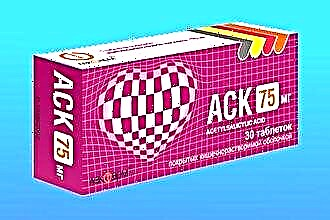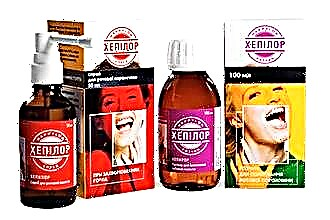The group of steroid drugs for nasal administration includes a large number of drugs. Among them, the most commonly prescribed are:
- Beconase;
- Fliksonase;
- Nasobek;
- Aldecin;
- Nazonex.
Mechanism of action
After the application of a corticosteroid solution to the nasal mucosa, the progression of the inflammatory process is inhibited, which is accompanied by a decrease in the severity of the common cold, tissue hyperemia, as well as relief of breathing.
Note that these drugs do not affect the cause of the disease, but only block the mechanism of allergy development and eliminate its symptoms.
Of the advantages, the lack of systemic action should be highlighted, so hormones in the bloodstream remain unchanged.
To get rid of the disease, it is necessary to establish its root cause, otherwise long-term persistence of symptoms is fraught with chronicity of the pathological process. If vasomotor rhinitis is caused by hormonal disorders during pregnancy or endocrine pathology, nasal steroids can only temporarily improve nasal breathing.
Now in more detail about each steroid drug for intranasal use.
Nasobek
 The action of the drug is aimed at suppressing inflammation and allergic reactions. Clinically, this is manifested:
The action of the drug is aimed at suppressing inflammation and allergic reactions. Clinically, this is manifested:
- decrease in secretion;
- decrease in tissue edema;
- increasing the resistance of the mucous membrane to external stimuli.
The therapeutic effect should be expected after 4 days from the start of treatment. The maximum effect can be obtained in a week.
The drug is prescribed for hay fever, vasomotor rhinitis, allergies (seasonal, year-round).
Application features
The drug is used only intranasally. Usually two doses (sprays) are prescribed twice a day. If necessary, the doctor can slightly change the scheme - one dose four times. The maximum daily dose is 8 sprays.
In the absence of a therapeutic effect, after 20 days from the start of treatment, the use of the nasal spray should be discontinued.
Shake the bottle before administering the medicine. After the procedure, you need to remove the applicator from the bottle and rinse it with running water.
If therapy is prescribed during pregnancy, it should be remembered that the use of a steroid spray in the first trimester is prohibited. Starting from the 13th week, Nasobek treatment can be carried out after the permission of the doctor. Also, restrictions apply to the lactation period.
With the parallel use of a beta-adrenostimulant with a steroid spray, the effectiveness of the former increases slightly.
Side effects, contraindications
In some cases, the following side effects are observed:
- painful sensations in the nasopharynx;
- dryness, irritation of the nasal mucosa;
- increased runny nose;
- cough;
- sneezing;
- nasal bleeding;
- ulcerative lesion of the mucous membrane at the injection site;
- perforation of the septum;
- visual dysfunction in the form of a decrease in acuity against the background of an increase in intraocular pressure.
In more rare cases, it is observed:
- headache;
- drowsiness;
- signs of conjunctivitis;
- dizziness;
- change in taste;
- skin rashes;
- bronchospasm.
With long-term use of high-dose corticosteroid drugs, the risk of nasopharyngeal candidiasis and delayed physical development in children increases.
 Contraindications include:
Contraindications include:
- hypersensitivity to components;
- hemorrhagic diathesis;
- ARVI;
- tendency to nasal bleeding;
- pulmonary tuberculosis;
- age up to six years.
Nasobeks should be used with caution by people with glaucoma, as well as in the presence of violations of the integrity of the nasopharyngeal mucosa. The use of the drug in high doses can lead to disruption of the hypothalamic-pituitary system.
Nasobek does not have a depressing effect on human consciousness, therefore it is not contraindicated for people whose profession requires concentration of attention.
Aldecin
The medicine has a powerful anti-inflammatory, antihistamine, immunosuppressive effect. Among the indications it should be noted:
- complex therapy for bronchial asthma;
- potentiation of the action of xanthines;
- vasomotor rhinitis;
- allergic rhinitis;
- polyposis.
Recommendations for use
Shake the bottle before administering the drug. When spraying the medication, the applicator should not come into contact with the mucous membrane. The doctor may prescribe one to two doses up to four times a day. The maximum dose is 16 sprays per day (for adults), 8 for a child.
After each injection of the drug, you need to rinse the mouth.
Adverse reactions, contraindications
If the recommended doses and duration of use are not observed, the following adverse reactions may occur:
- skin rashes (as a manifestation of allergies);
- itchy sensations;
- sneezing;
- nasal bleeding;
- candidiasis of the nasopharynx;
- nausea;
- dizziness;
- heart palpitations.
In rare cases, hyperglycemia is noted (an increase in the level of glucose in the bloodstream), signs of cataracts, osteoporosis, and arterial hypertension appear.
Contraindications include:
- individual intolerance to the components;
- tuberculosis of the respiratory tract;
- the acute phase of an infectious disease;
- hemorrhagic diathesis;
- frequent nasal bleeding;
- age up to six years;
- an attack of bronchial asthma.
Aldecin is contraindicated in the first trimeter of pregnancy. When carrying out therapy in the lactation period, breastfeeding must be stopped.
If the recommended doses are exceeded during pregnancy, dysfunction of the adrenal cortex in an infant may occur.
Overdose is accompanied by dyspeptic disorders, arterial hypertension, glaucoma and shortness of breath. It is also possible that the adrenal glands function is suppressed by the penetration of the steroid into the systemic bloodstream.
Caution in use should be observed for people with hypertension, glaucoma, liver failure, hypofunction of the thyroid gland. Also, special attention should be paid to the use of Aldecin against the background of antibiotic therapy.
Nazonex
 Another drug of the group of glucocorticosteroids is called Nasonex. It is prescribed for local administration, has anti-inflammatory and antihistamine properties. When used correctly, it does not cause systemic adverse reactions.
Another drug of the group of glucocorticosteroids is called Nasonex. It is prescribed for local administration, has anti-inflammatory and antihistamine properties. When used correctly, it does not cause systemic adverse reactions.
The drug is not in the form of drops, therefore, dosing is carried out according to the number of sprays.
Nazonex is shown:
- for prophylactic purposes in case of exacerbation of seasonal allergic rhinitis. Nasal spray is prescribed 2 weeks before the beginning of the flowering period;
- for the treatment of year-round allergies;
- as part of complex therapy for chronic rhinitis.
Adverse Reactions
The drug is used once a day, two sprays in each nasal passage. The maximum dose is 8 sprays per day. When the desired therapeutic effect is achieved, the dosage must be halved.The first results of treatment are observed 12 hours after the administration of Nasonex. Shake the bottle before use.
Of the side effects, we focus on:
- nasal bleeding;
- burning sensations in the nasopharynx;
- sore throat;
- irritation of the nasal mucosa;
- headache;
- sneezing.
In exceptional cases, there is an increase in intraocular pressure and perforation of the septum.
Contraindications
Contraindications include:
- age up to two years;
- tuberculosis of the respiratory tract;
- the acute phase of an infectious disease;
- hypersensitivity to drug components;
- recent injuries, surgical interventions in the nasopharynx area.
The question of the use of Nazonex during pregnancy is decided exclusively by a doctor. The period of gestation does not apply to absolute contraindications, since a minimum amount of the drug enters the systemic bloodstream.
If Nasonex therapy was nevertheless carried out during pregnancy, the adrenal function of the infant should be monitored after birth.
To prevent changes in the flora of the nasopharynx, strict control of the ENT doctor is required throughout the duration of hormonal therapy.
Fliksonase
Finding nasal drops with a hormonal composition in our time is quite difficult. Today there are a large number of steroid solutions in the form of an aerosol for nasal administration.
One of the representatives of the group of corticosteroids is Flixonase. It reduces the severity of inflammation, tissue edema, and also blocks the development of an allergic reaction. The therapeutic effect is observed 4 hours after administration. The spray improves the quality of life of patients with allergic rhinitis by reducing its symptoms.
The difference between Flixonase and other nasal hormones is the absence of a negative effect on the work of the hypothalamic-pituitary system. On the first day after using the drug, the following may appear:
- tickling in the nasopharynx;
- itchy sensations in the nasal cavities;
- signs of conjunctivitis.
In addition, rhinorrhea and nasal congestion may worsen.
Mode of application
 Flixonase is prescribed for intranasal administration. To achieve the maximum effect, you must follow the doctor's recommendations. The spray should be used in the morning. A single injection of two doses into each nasal passage is shown daily.
Flixonase is prescribed for intranasal administration. To achieve the maximum effect, you must follow the doctor's recommendations. The spray should be used in the morning. A single injection of two doses into each nasal passage is shown daily.
In order to quickly relieve clinical symptoms, the doctor may prescribe two doses twice a day. A similar scheme should be used in a short course, after which the dose is reduced. It is necessary to evaluate the therapeutic effect on the 3rd day after the start of treatment.
Children are prescribed one dose once a day.
Shake the bottle before administering the drug. After spraying, the applicator should be cleaned with running water (the procedure should be repeated at least once a week).
Possible complications of therapy, contraindications
After applying a hormonal agent to the nasal mucosa, the following side effects may occur:
- irritation of the nasopharynx;
- headache;
- dryness in the nasal passages;
- burning sensations;
- unpleasant taste in the mouth;
- nasal bleeding;
- nasal congestion.
Septal perforation is extremely rare. If there is swelling of the tongue, face, as well as skin rash and shortness of breath, you should suspect an allergy to Flixonase.
Contraindications include:
- age up to four years;
- individual intolerance to the constituents of the drug.
The decision to use Fliksonase during pregnancy is made exclusively by the doctor after assessing the severity of the disease, the woman's condition and the risk to the embryo.
Steroid therapy is used with caution in people with:
- recently transferred operations in the nasopharyngeal zone;
- acute infectious diseases.
Regular medical supervision is necessary to prevent the occurrence of complications, in particular, adrenal dysfunction.
Corticosteroid therapy has a number of contraindications, so you should not use hormonal sprays on the advice of friends or neighbors.



